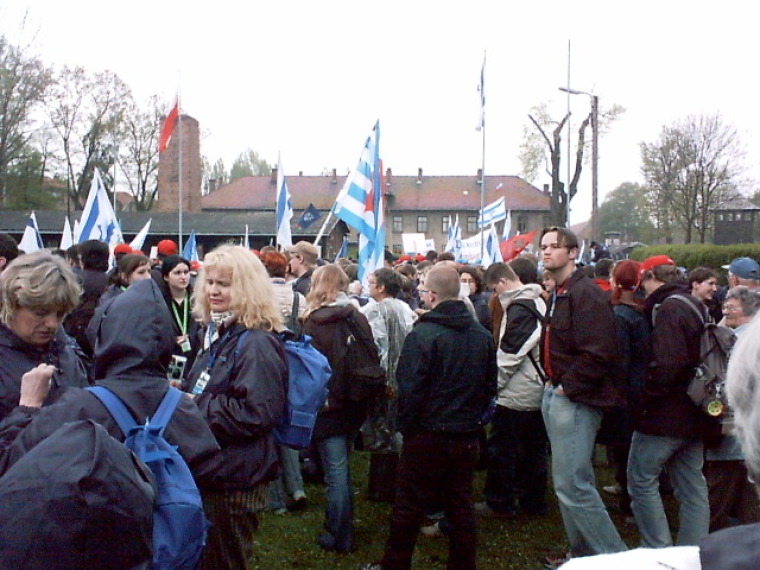

German Chancellor Angela Merkel was quoted as saying that the German form of multiculturalism is 'a total failure' while a study by the Friedrich Ebert Foundation reveals that more than one in 10 called for a ''fuehrer'' to run the country "with a strong hand."
Now Merkel's disastrous handling of the mass immigration of Muslim refugee seekers with 1 million entering Germany has again seen this call for a strong hand to 'fix it'. We're seeing evidence now that many of these refugee people will not work claiming they are guests of Merkel.
We see the call for 'strong leaders' across the world – the Philippines is one example where the newly elected President is 'gunning for the bad guys' in real time. Britain has a surprisingly strong woman Prime Minister. The US has running for election a strong man front and centre. The list could go on. People are gathering.

Dietrich Bonhoeffer
Perhaps we might draw upon the example of Dietrich Bonhoeffer who is perhaps the mid-twentieth century's most revered Church leader. Bonhoeffer was born 4 February 1906 and was hanged by the Nazis on 9 April 1945. He was a German Lutheran Pastor and a theologian of note, who participated in the German Resistance movement against Nazism and was a founding member of the Confessing Church.
His promising academic and ecclesiastical career was dramatically altered with Nazi ascension to power on 30 January 1933. He was a determined opponent of the regime from its first days.
Bonhoeffer delivered a radio address attacking Hitler, in which he warned Germany against slipping into an idolatrous cult of the Führer (leader), who could very well turn out to be Verführer (mis-leader, or seducer). He was cut off the air in the middle of a sentence.
Three months later he had become almost a lone voice for Christian resistance to Hitler's persecution of Jews when he declared that the church must not simply "bandage the victims under the wheel, but jam the spoke in the wheel itself." He became a strong political church leader against Hitler's unconstitutionally imposed structure onto all German Protestant church bodies.
He refused to be part of the newly structured German Church and spent two years in London after which he returned secretly to Germany visiting many churches and then spent time in the United States leading up to his return to Germany before the outbreak of war, knowing full well he may be struck down.
The rest is history. Working behind the scenes as an Abwehr agent smuggling Jews out of Germany, he was finally arrested 6 April 1943 and thereupon he wrote some of the 20th century's most poignant theological writings. He was executed by hanging only three weeks before Hitler himself committed suicide.
Protestant seminaries throughout the world study Bonhoeffer. From a recent report that I read, I feel that there may come a time very shortly when many more 'Bonhoeffers' may need to come to the fore in Germany.

Can German history be repeated?
The television series entitled 'The Nazis – A lesson from history' tells the story of the beginnings of national socialism in Germany in the 1920s and 1930s, and showed the inability of the Weimar Republic to find political harmony in Germany after WWI.
The difficulty was in the economic situation. Partly due to the large reparations required of Germany after they lost World War I (which have only just recently been fully paid), for fourteen years from 1919 through to 1933, the economy in Germany fell away in a disastrous fashion.
The Great Depression occurred in the later part of this period, and the vast middle class saw everything they had worked for disappear. This series documented how many aspects of German life were politically polarised. People looked to either the far right or to the far left to solve the 'hip pocket nerve' problems.
This was a period of street fights and unending civil unrest. In such circumstances, wherever and whenever they have occurred, there is a call for a 'strong man' (a political leader) to run the country and put a stop to all that is wrong with the politics, and more important with the financial system, and to bring a calm and with renewed national identity.
In Germany's situation in 1933 this political 'strong man' void was filled by Adolf Hitler and National Socialism with a platform of radical nationalism. He did what he promised. He ended the hyper-inflation almost overnight.
However, he was indeed a 'strong man' and he corrupted the political system to make himself chancellor as well as leader. With this power, and the reality of the State and Army behind him, he settled for nothing less than dictatorial political power.
Any such 'strong man' throughout history, by taking away the people's 'political freedom', soon reveals that a whole lot more gets taken away as the politic and dictatorial nature of the individual determines the society.
This maybe is a crucial time for Germany with this refugee crisis. Perhaps a generation of Bonhoeffer's might come to the fore for a fresh touch of the Spirit of the Lord upon that nation in these dramatic times.

Dr Mark Tronson is a Baptist minister (retired) who served as the Australian cricket team chaplain for 17 years (2000 ret) and established Life After Cricket in 2001. He was recognised by the Olympic Ministry Medal in 2009 presented by Carl Lewis Olympian of the Century. He mentors young writers and has written 24 books, and enjoys writing. He is married to Delma, with four adult children and grand-children.
Mark Tronson's archive of articles can be viewed at http://www.pressserviceinternational.org/mark-tronson.html